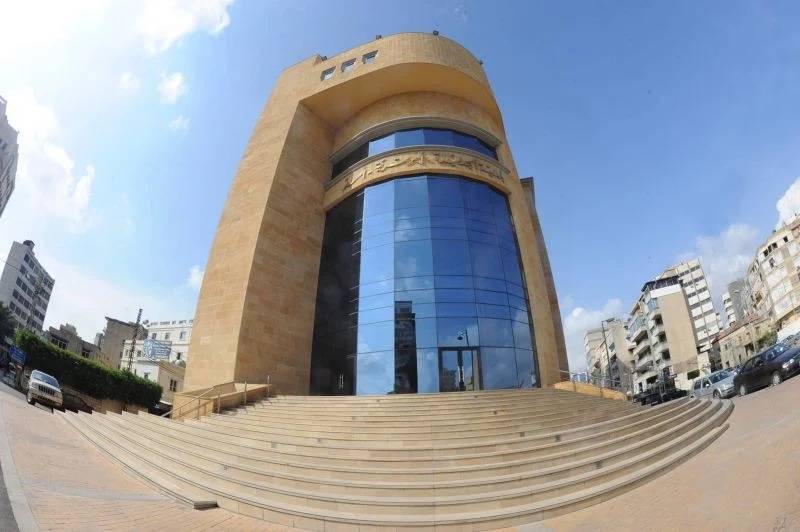
Exterior view of the municipal building of Jdeideh. (Credit: Facebook)
After weeks of back and forth, the news is finally confirmed. The municipality of Jdeideh, the largest in Metn, is officially dissolved after half of its members threw in the towel in mid-March due to political conflicts, according to some, and administrative conflicts, according to others.
After weeks of talks in a bid to avoid this collapse, the resignations were finally accepted by the mohafez (governor) of Mount Lebanon Mohammad Mekkawi, who notified caretaker Interior Minister Bassam Mawlawi on Tuesday, according to information obtained by L'Orient-Le Jour.
Headed for 20 years by Mayor Antoine Gebara, known for being close to the politically influential Murr family despite later distancing himself from them, the locality, which has 20,000 registered voters (including the neighborhoods of Bouchrieh-Sadd) and important sites including a coastal landfill, is now in a delicate situation.
These developments are all the more dramatic because Parliament has postponed the municipal elections, which were to be held in May, until next year.
‘They ganged up on me’
Made up of people close to the Murr family, the Free Patriotic Movement (FPM), the Kataeb and the Lebanese Forces (LF), the municipal council of Jdeideh was declared defunct after the resignation of 11 of its 21 members. Those who resigned offered no formal explanation for their motives.
Contacted by L’Orient-Le Jour, Gebara believes that this is an exclusively political matter related to his conflict with the Murr family “since the parliamentary elections of 2018.”
“I am a victim of a plot. At the time, [former minister] Elias Murr threatened me on live TV,” he said.
According to Gebara, it all started this time when “elected members of the FPM and others close to Elias Murr joined forces” against him, which led to the dissolution of the municipal council.
Speaking to L’Orient-Le Jour, MP Michel Elias Murr, refused to comment on this matter.
Deputy Mayor Mansour Fadel is among those who resigned from the council. Fadel, who also holds the post of vice president for youth affairs in the FPM, said for his part that this case “absolutely not political.”
“This is an administrative conflict, not a political one. We were not satisfied with the work, as simple as that. Some will tell you that they left because the mayor monopolized decision-making, others because he was trying to get his son elected in the next municipal elections,” he said.
According to Fadel, the situation in the municipality “was no longer bearable.”
“Compared to the system that was in place, I think it is much better now, even with a vacuum at the administrative level. It’s better than dealing with someone who monopolizes decisions,” he said.
A source in the Interior Ministry said the mayor is currently the subject of a lawsuit Elias Murr filed. This information was confirmed by Gebara himself.
Gebara retaliated by filing a lawsuit against the former minister, accusing him of defamation and paying bribes to public officials. “Elias Murr undermined the city council to get to me,” Gebara said.
An administrative headache
In any case, the dissolution of the municipal council of this important locality is not insignificant. When asked about the continuation of the administrative work in Jdeideh, Gebara simply replied, “I don’t mind being removed. I need to rest anyway. By law, running the day-to-day affairs in a resigned municipality is the responsibility of the mohafez or qaimaqam (district commissioner) of Metn, who must take care of all administrative matters.
This situation is worrisome for Mekkawi, whose jurisdiction covers the locality of Jdeideh.
“This municipality poses many challenges, related among other things to the management of the coastal landfill that is located on the coast of Metn, not to mention the industrial area of the locality or the many fuel tanks [located along the coast of Jdeideh and owned by fuel distribution companies],” said the governor.
Commenting on the landfill, Gebara said that the municipal council has never taken care of the site, as its management falls within the responsibility of the Council for Development and Reconstruction, which manages the contract with a private company — that of contractor Dany Khoury.
A government source said the municipal vacuum will not affect the site’s management.
“This is one of the five largest municipalities in the country and the largest in Metn. So, it will be difficult for one person to manage a municipality of this size. It is the people of the region who will pay the price,” said Mekkawi.
Commenting on whether by-elections could be held to elect a municipal council, the governor revealed that the authorities are not even thinking about it.
“No one will bother to launch campaigns to elect municipal councils that will remain in place for barely a year. Moreover, things will be complicated if other municipal councils resign in the meantime,” he said.
The case of Jdeideh municipality is far from being an exception. A source at the Interior Ministry revealed to L’Orient-Le Jour that a total of 110 municipal councils out of 1,057 have resigned since the beginning of the crisis in Lebanon, that is to say more than 10 percent of local authorities in the country.
According to the Mount Lebanon governor, “more than 30 municipalities have been dissolved in this governorate alone for problems that are sometimes political, other times related to the situation in the country.”
“The pace of resignations in municipal councils will certainly increase in the coming weeks,” said Mekkawi, citing the budget meltdowns of these local authorities that complicate municipal work. He also said he “had tried everything to push the elected officials of Jdeideh [municipality] to reconsider their decision, but in vain.”
This article was originally published in French by L'Orient-Le Jour. Translation by Joelle El Khoury.
